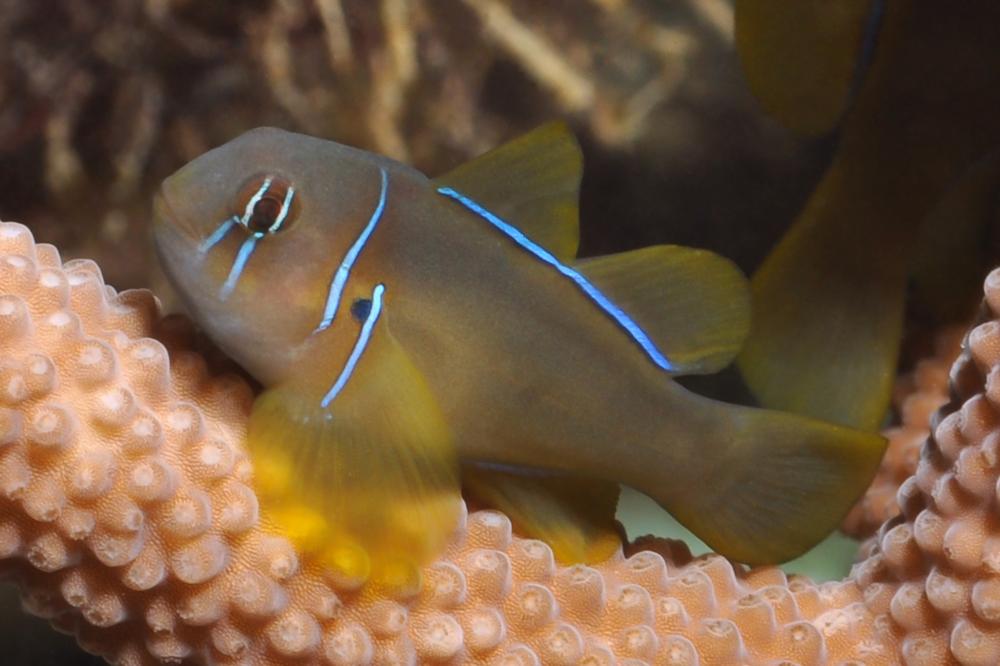Gobiodon citrinus
Lemon Coralgoby | Citron Goby | Four-bar Maori Goby | Fourbar Goby | Poison Goby | Yellow GobySimilar Species
Same Genus
Distribution
Tropical Indo-Pacific
Description
High, yellow body, small black spot at pectoral fin base, two blue bars over eye, one at back of head and one on pectoral fin base, and blue stripes along base of dorsal and anal fin. Lives amongst coral, often on openly branching corals and less shy than other coral gobies. Produces toxic mucus.
Information
Max Size: 7 cm
Sea Temperature Range: 20.3-33°C
Depth: 2-20 m
Habitat Generalization Index: 9.63
Also referred to as the SGI (Species Generalisation Index), this describes the habitat niche breadth of the species. Species with values less than 15 are found in a relatively narrow range of reef habitat types (specialists), while those over 25 may be found on most hard substrates within their range (generalists). Learn more here.
Conservation and Rarity
IUCN Status: Not Evaluated
Occurrence: Infrequent (8.3% of sites)
Occurrence describes how often the species is found on surveys within its distribution. It is calculated as the % of reef sites surveyed by RLS divers across all the ecoregions in which the species has been observed
Abundance: Several (7 per transect)
Abundance is calculated as the average number of individuals recorded per RLS transect, where present.
Edit by: Joe Shields



















![Gobiodon sp. [1 GA]](https://images.reeflifesurvey.com/0/species_d8_59829b5ae40ff.w400.h266.jpg)
![Gobiodon sp. [3 GA]](https://images.reeflifesurvey.com/0/species_4e_590abcff6f286.w400.h266.jpg)
![Gobiodon sp. [prolixus]](https://images.reeflifesurvey.com/0/species_ec_5982aab3a166e.w400.h266.JPG)
